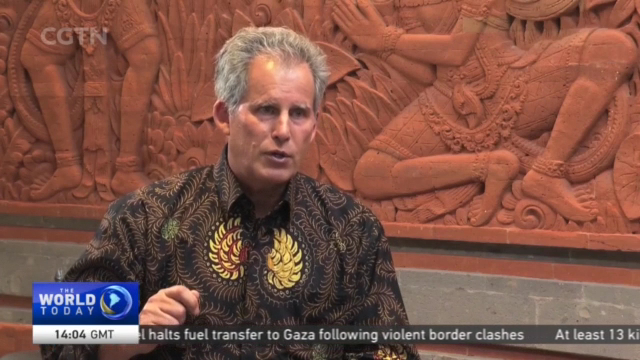
23:02, 13-Oct-2018
IMF-World Bank Meetings: Second day of meetings focused on the Belt and Road Initiative
Updated
22:31, 16-Oct-2018
02:55

On the second day of their annual meetings, the International Monetary Fund and the World Bank shifted their focus to the importance of investments under the Belt and Road Initiative. Emerging economies have benefited from China's proposal since 2013. However, today's sessions also highlighted certain challenges faced by the countries involved. CGTN's Silkina Ahluwalia has more.
The IMF and World Bank Meetings enter its second day with the focus largely on China and the economic benefits of the Belt and Road Initiative.
China's Vice Finance Minister, Zou Jiayi said the BRI aims to develop high quality connectivity that matches the standards of the countries involved in terms of economic, environmental and social growth.
ZOU JIAYI CHINA'S VICE FINANCE MINISTER "When we pursue high standards, it has to be cost effective. We have to be in line with the market rule. Because most of the BRI projects actually is commercial based. It is a development initiative based on the market mechanism and driven by the market forces and have to be in line with the market rule."
Jiayi also stressed on the need to localize projects according to the country's specific conditions. Infrastructure projects remain an important agenda of the BRI and for developing nations, those projects are crucial in order to sustain economic growth.
Indonesia, for example, has benefitted from the infrastructure investments for years. Several slum areas in the country's capital city of Jakarta has been successfully transformed into urban residential areas under the "National Slum Upgrading Project".
SILKINA AHLUWALIA BALI, INDONESIA "This morning's sessions highlighted that the Belt and Road Initiative is not just about infrastructure investments, it's about having proper regulations and policies that can benefit the countries involved."
Jiayi acknowledged the debt issues involved in some of their BRI projects. Along with that, IMF's David Lipton also warns of the challenges some developing regions might face under the BRI.
DAVID LIPTON FIRST DEPUTY MANAGING DIRECTOR, IMF "A good BRI leads to efficient projects and efficient infrastructure that's very useful, but there's a chance that of course, we know from the history of the last four decades of developing countries, that sometimes people don't choose the best projects and sometimes the projects aren't implemented successfully."
Although BRI would largely improve the investment climate of those countries, the sessions also mentioned the importance of boosting investor protection to make sure there are ways to mitigate risks and provide a safe and secure climate for investors. Silkina Ahluwalia, CGTN, Bali.

SITEMAP
Copyright © 2018 CGTN. Beijing ICP prepared NO.16065310-3
Copyright © 2018 CGTN. Beijing ICP prepared NO.16065310-3